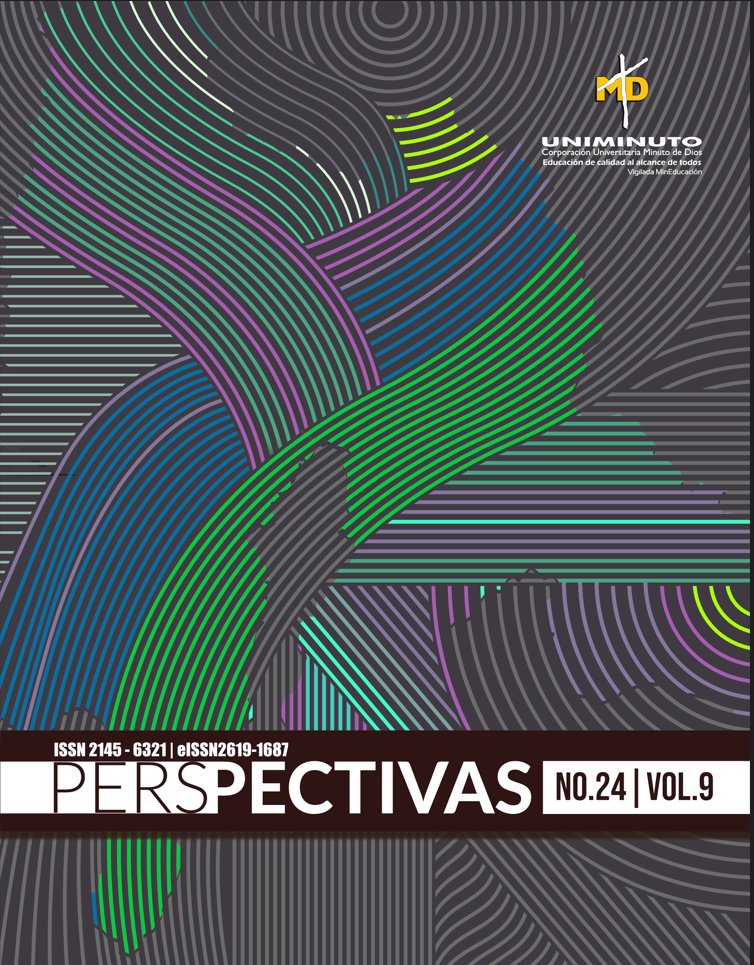Mental health promotion in students from Nátaga and La Plata, Huila
Article Sidebar
How to Cite
Altmetrics
Article Details

This work is licensed under a Creative Commons Attribution 4.0 International License.
Main Article Content
Abstract
This project was proposed to strengthen the self-esteem of 80 students between 15-19 years old of both sexes who were in eleventh grade in two institutions in the municipalities of La Plata and Nátaga, Huila, with the purpose of promoting their mental health, which will be reflected in good academic performance. Therefore, its development had two phases; Firstly, the Rosenberg self-esteem scale was applied to measure the level of self-esteem of the students, relating it to their academic performance. Secondly, an intervention plan was carried out within the framework of the promotion of mental health, which had process and result indicators guaranteeing the evaluation and monitoring process, said plan included the following activities: “Psychoeducation workshops for teachers and parents, dynamics of solidarity acts, role-playing, games on emotional competencies such as a gratitude diary - self-portraits and dynamic recreational activity called Gymkhana.”
During the period of two months, after the implementation of the intervention program, the Rosenberg self-esteem scale was applied for the second time with the purpose of analyzing the results using the Jamovi application, through which it was found that the Self-esteem is significantly related to adequate academic performance and decision making, therefore, it was interpreted as a protective factor to avoid risky behaviors and as a risk factor when it is weak or absent.
The development of the project was carried out using a mixed methodology, with which the students who supported the execution of the project developed skills for the construction, application and analysis of quantitative and qualitative instruments that allowed them to get closer to the knowledge of the phenomenon in order to intervene.
References
Camacho Gómez, A. y Morcillo Duque, N. (2017). Representaciones sociales de la imagen corporal en 4 estudiantes del Colegio San Francisco Javier de la ciudad de Cali, frente a los programas de televisión. [Tesis de pregrado]. Universidad de San Buenaventura Colombia.
García, J., Owen, E. y Flórez-Alarcón, L. (2005). Aplicación del modelo Precede-Proceed para el diseño de un programa de educación en salud. Psicología y salud, 15(1), 135-151.
Gutiérrez-Saldaña, P., Camacho-Calderón, N. y Martínez-Martínez, M. L. (2007). Autoestima, funcionalidad familiar y rendimiento escolar en adolescentes. Atención Primaria, 39(11), 597-603. https://doi.org/10.1157/13112196
Hernández-Sampieri, R. y Mendoza, C. (2018). Metodología de la investigación. Las rutas cuantitativa, cualitativa y mixta. Mc Graw Hill Education.
Organización Mundial de la Salud. (17 de junio de 2022). Salud mental: fortalecer nuestra respuesta. https://www.who.int/es/news-room/fact-sheets/detail/mental-health-strengthening-our-response
Pérez-Villalobos, C., Bonnefoy-Dibarrat, C., Cabrera-Flores, A., Peine-Grandón, S., Abarca, K.-M., Baqueano-Rodríguez, M. y Jiménez-Espinoza, J. (2012). Problemas de salud mental en alumnos universitarios de primer año de Concepción, Chile. Anales de Psicología, 28(3), 797-804. https://doi.org/10.6018/analesps.28.3.156071
Piña Osorio, J. M. y Cuevas Cajiga, Y. (2004) La teoría de las representaciones sociales. Su uso en la investigación educativa en México. Perfiles Educativos, 26(106), 102-124.
Rojas-Barahona C, Z. B. (2019). La escala de autoestima de Rosenberg: Validación para Chile en una muestra de jóvenes adultos, adultos y adultos mayores. Scielo, 137(6), 9.
Saeteros Hernández, R., Ortiz Zayas, E., Saeteros Hernández, A., Mejía Paredes, M. y Ortiz Zayas, E. (2022). Modelo precede - procede para la promoción y educación sexual de estudiantes universitarios ecuatorianos. La Ciencia al Servicio de la Salud y la Nutrición, 12(SISANH), 4 - 17. https://doi.org/10.47244/cssn.Vol12.IssSISANH.6434.
Most read articles by the same author(s)
- Alfonso Ríos Sánchez, Derly Janeth Quintero Rosero, Adriana Carolina Villada Ramírez, Ana Lucía Sandoval Vitovis, William Horacio Vásquez Casanova, Comparative study of educational progress in the municipality of la Plata - Huila: , Perspectivas: Vol. 3 No. 12 (2018): Octubre-Diciembre

